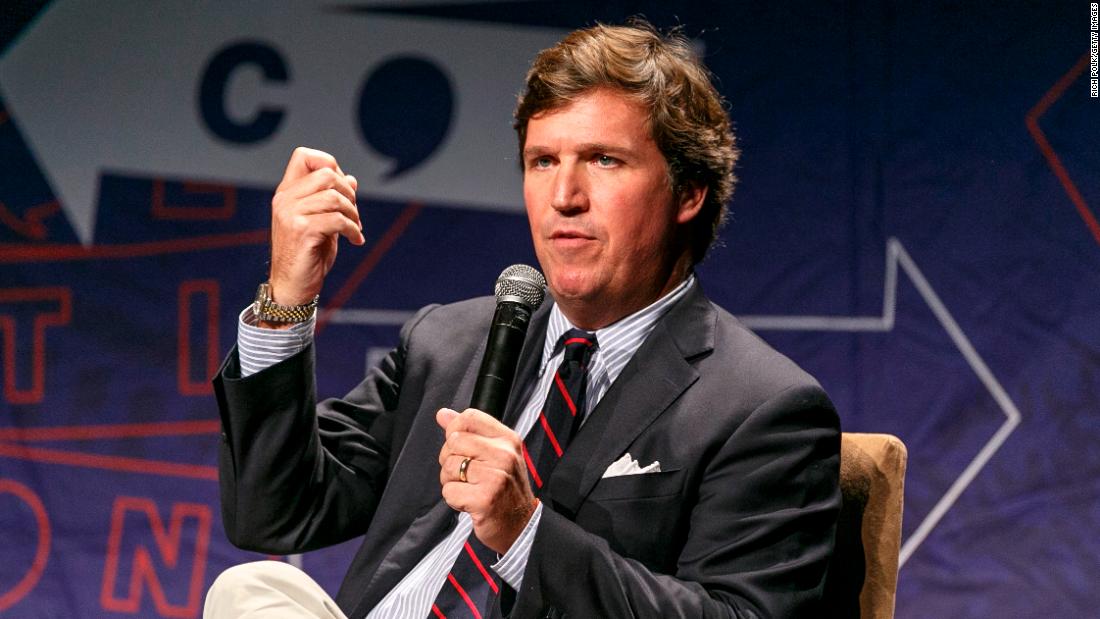
Carlson's show, "Tucker Carlson Tonight," was down from the normal five commercial breaks to four on Wednesday night -- a clear sign the pressure campaign spearheaded by liberal activists is having its intended result.
In those four breaks, there were approximately 20 regular commercials, plus six advertisements for other Fox content. In the week before the boycott, Carlson's program averaged 36 advertisements per show, not including commercials for Fox content, according to The Hollywood Reporter.
Carlson prompted a backlash last week when he said on his show that mass immigration "makes our country poorer, and dirtier, and more divided." He defended his comments in a segment earlier this week, showing images of trash at the US-Mexico border and arguing border crossers leave behind large amounts of "garbage and waste" as they make their way inside the country.
On Wednesday night's show, Alan Dershowitz, the retired Harvard law professor who regularly appears as a guest on Fox News and other cable networks, confronted Carlson for his rhetoric during an unrelated segment on the latest developments about fired National Security Adviser Michael Flynn.
Dershowitz said he disliked advertiser boycotts, but that he felt "compelled" to tell Carlson that he disagreed with his comments and wish he "hadn't used that language."
Carlson pushed back against Dershowitz's characterization of his comments, saying he is "pro-people" and "would never describe people as inherently dirty."
Since Carlson's initial remarks, more than a dozen companies -- including IHOP, Just For Men, and Land Rover -- have announced that they were either pulling their ads from Carlson's show, or suspending them.
Liberal organizations like Media Matters and Sleeping Giants, which have led similar boycotts against Fox News programming before, have publicly pressured companies to stop supporting Carlson's program through advertising dollars.
Reached for comment on Thursday, a Fox News spokeswoman pointed to her Tuesday statement which said, "We cannot and will not allow voices like Tucker Carlson to be censored by agenda-driven intimidation efforts from the likes of Moveon.org, Media Matters and Sleeping Giants."
The Fox News spokeswoman added on Tuesday, "While we do not advocate boycotts, these same groups never target other broadcasters and operate under a grossly hypocritical double standard given their intolerance to all opposing points of view."
Responding to Fox News, Angelo Carusone, the president of Media Matters, released a statement Tuesday imploring people not to "let Fox News distract, deflect, or deceive."
"This isn't about Media Matters, Sleeping Giants, or activists," Carusone said. "No one forced Tucker Carlson's odious bigotry and fixation on white genocide conspiracy theories. And that's what advertisers are rejecting. Rightfully so, too."
Carlson has found some supporters in unlikely places, however. Jack Shafer, the Politico media critic who said he dislikes Carlson's show and wishes it would find itself "an immediate, shallow grave in the TV-show boneyard," wrote in a column Wednesday, "As much as the Carlson show pains me, the calls by activists for an advertiser boycott pain me more."
"Advertisers tend to be timid, overreactive, running from controversy and conflict, and in times of perceived crisis, their timidity spreads to publishers, which is bad for journalism," Shafer wrote. "It's easy to imagine today's boycotts turning into tomorrow's blacklist."
For now, the advertiser boycott is not hurting Fox News' bottom line, the network spokeswoman told CNN Tuesday, explaining that the advertisers abandoning Carlson's program were moving their commercials to other shows on the channel. Of course, networks always want to fill every hour of programming with advertisements, and the boycott is hindering Fox News' ability to do that on Carlson's show.
It's possible -- perhaps even likely -- that with the holidays approaching, the pressure on companies to leave his show will cool as people tune out of the news cycle to spend time with family. Advertiser boycotts rarely last for long periods of time.
That said, the success of the current campaign has underscored that the Fox News primetime lineup -- made up of right-wing commentators -- is vulnerable to advertiser boycotts flaring up because the hosts are prone to making the kinds of remarks that can spur them.
In April, more than a dozen companies said they would no longer advertise on Laura Ingraham's show after she mocked David Hogg, a survivor of the Parkland school shooting who has become a vocal advocate for gun control.
Last year, a separate advertiser backlash hit Carlson's predecessor on Fox News' 8 p.m. hour, Bill O'Reilly, after a New York Times report about settlements with women who alleged either sexual harassment or verbal abuse by O'Reilly. The number of advertisers pulling their commercials eventually grew to at least 60, and O'Reilly, who denied the sexual harassment allegations, was eventually pushed out of Fox.
Bagikan Berita Ini















0 Response to "Tucker Carlson's show has been hit by an advertiser boycott, and it's having an effect"
Post a Comment